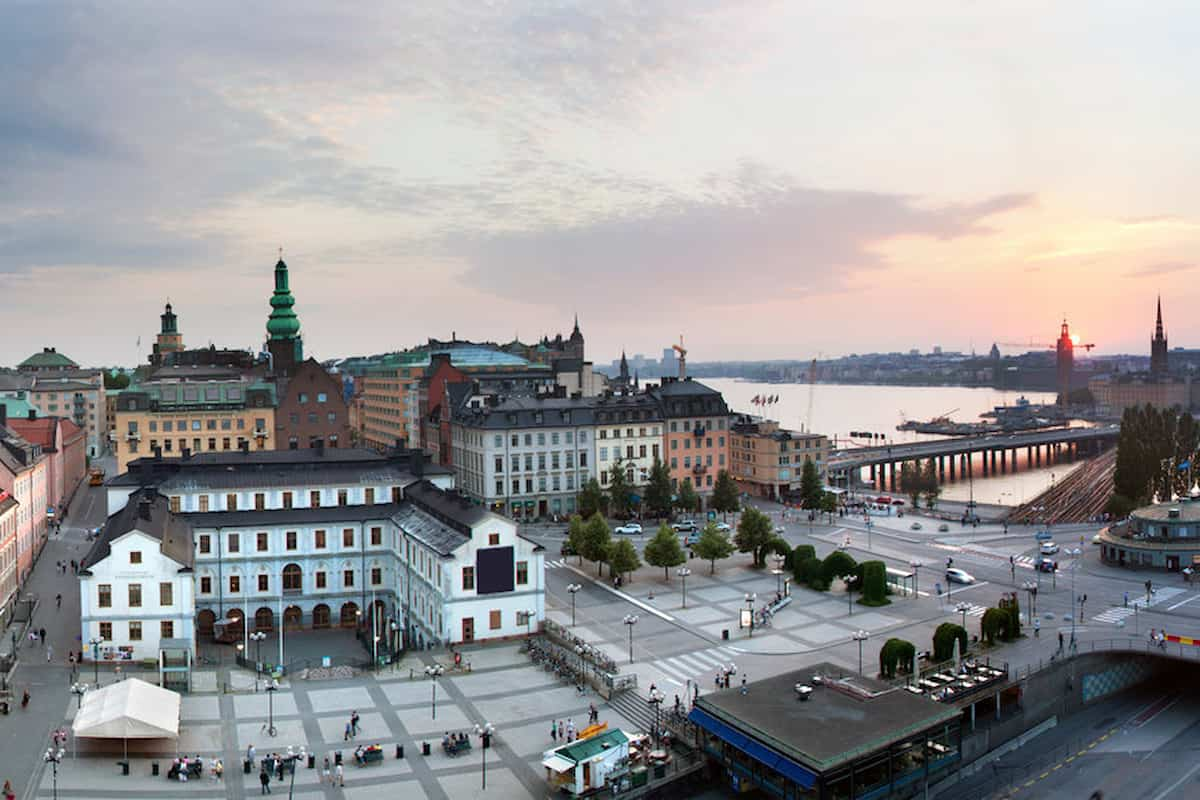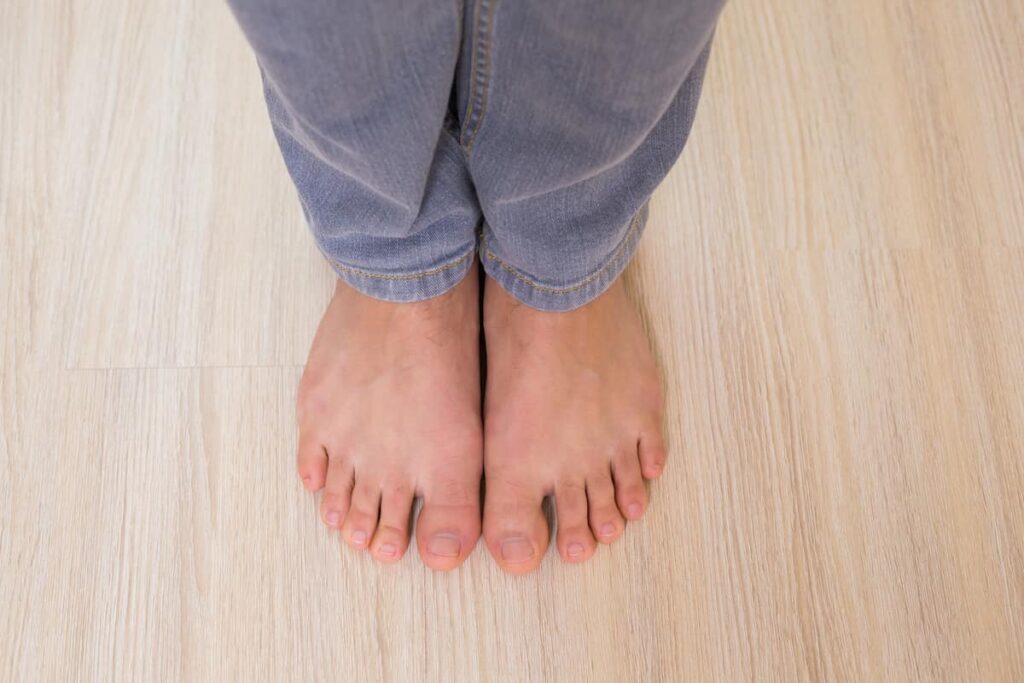Welcome to Sweden: the land of fika breaks, lagom and…cashless payments?
Are you planning to move to this beautiful country? Or just curious about what life is like here? Well, you’ve come to the right place!
In this article, I’ll take you on a journey through the ins and outs of life in Sweden. From the importance of punctuality to the joys of the great outdoors, I’ve got you covered.
So grab a cup of coffee, put on your hiking shoes, and let’s get on our way!

Table of Contents
1. Cashless is king
Sweden is one of the most cashless societies in the world. Everywhere you go, you’ll find people using debit and credit cards, mobile apps, and other digital payment methods.
This is partly due to the fact that Sweden has a very low crime rate, so people feel safe using electronic payments. It’s also due to the fact that many stores and restaurants don’t accept cash at all.
All this means that if you’re planning to live in Sweden, make sure you have a card with you, or download a mobile payment app like Swish, which is a Swedish mobile wallet which links your mobile phone to your bank account..
2. You may not need to learn Swedish (although it’s good to do so)
Many people in Sweden speak English, so – as lazy as it may sound – you’ll be able to get by without speaking Swedish, especially if you are moving to a major city.
However, if you’re planning to live in Sweden for a longer period of time, or if you’re looking for work, it’s a good idea to learn the language. Not only will it help you communicate with your neighbors and coworkers, but it will also give you a deeper understanding of the culture.
Find out more: Is Swedish Hard to Learn? (Hint: Less Than You Think!)
3. Gender equality is very important
Sweden is known for being one of the most gender-equal countries in the world. This means that men and women are treated much more equally than in other countries in essentially all areas of life, including the workplace, politics, and society in general.
The Swedish government is committed to promoting gender equality, and there are many laws and programs in place to support this goal.
While, of course, things aren’t perfect yet, they’re definitely well on their way. In fact, I consider this one of the best reasons to move to Sweden (just in case you need some!)
If you’re coming from a country where gender equality is not a priority, you may be surprised by how different things are in Sweden. For instance, expect to see a lot of men with prams in the street – which, at least for me, was something I definitely noticed as being different from home.
4. First names (basically) all the time
In Sweden, it’s common to address people by their first name, regardless of their age or profession. This is part of the country’s informal culture, and it’s seen as a sign of respect and equality.
Based on this, if you’re meeting someone new, it’s best to use their first name and ask them to call you by yours. This may take some getting used to if you’re coming from a culture where formal titles and last names are more common but I promise, you won’t offend anyone by doing it here.
5. “Lagom” or “just enough”
“Lagom” is a Swedish word that translates to “just enough” or “in moderation”. It’s a core value in Swedish culture, and it’s reflected in many aspects of life.
One typical trait of Swedish people is that they tend to be modest, and they don’t like to show off or boast. They also value simplicity and sustainability.
This means that, for example, you might find that houses and apartments in Sweden are not as large as in other countries, and people prefer to focus on quality over quantity.
Find out more: 34 Beautiful Swedish Words and Sayings (You Need to Learn)
6. Get your hiking shoes ready
Sweden is home to some of the most beautiful nature in the world, and there are many opportunities to explore it. Whether you’re into hiking, skiing, or just taking a walk in the woods, you’ll find plenty of trails and paths to enjoy.
The Swedish countryside is dotted with lakes, forests, and mountains, and you’ll find many parks and protected areas to explore.
So, if you’re someone who loves the outdoors (or even if you don’t yet), be sure to pack your hiking shoes and get ready for an adventure.
7. Yes, it’s cold (but maybe not as cold as you think)
Sweden is known for its cold winters, and it’s true that temperatures can drop below freezing. However, the country also has a relatively mild climate, and the cold is usually bearable.
The cities and towns are well-equipped with heating, and you’ll find many warm and cozy places to spend your time. Plus, the snow and ice can make for some beautiful scenery.
So, while you may need to bundle up, it won’t be as much as you may first think – and don’t let the cold scare you away from experiencing all that Sweden has to offer.

8. Yes, it gets dark
Another thing to keep in mind is that, during the winter months, daylight hours are much shorter than in other parts of the world. The sun rises and sets at a much earlier time than you might be used to, and the sky can be dark for most of the day.
However, it’s only in the very north (where very few people live) that it gets dark for weeks on end. In the vast majority of the country, you’ll have shorter days but should still get a few hours of light.
Even this can take some getting used to, but it’s important to remember that the darkness is only temporary. Plus, the darkness can make for some beautiful, crisp winter nights!
Related: Does It Get Dark in Sweden in Summer – or For Months in Winter?
9. There’s no bad weather (there is, actually, but don’t tell the Swedes that)
Swedes have a saying, “there’s no such thing as bad weather, only bad clothing”. This reflects their attitude towards the weather, which is that it’s not something to be feared or complained about. They believe that with the right clothing (ideally from one of the best Swedish clothing brands out there) you can enjoy the outdoors no matter what the weather is like.
This mindset is evident in the way Swedes live their lives, as they honestly always seem to be out and about, cycling, walking or running even in harsh weather.
Look, if you ask me, sometimes the weather is simply bad – wet and windy and downright cold. But if you dwell on it for too long, it can make your life in Sweden pretty depressing. Instead, there’s certainly a benefit in taking on the Swedish mindset that it’s not something to be seen as a hindrance.
10. No shoes inside
It’s common practice in Sweden to remove your shoes when entering someone’s home. This is a way to keep the inside of the house clean and to show respect for the homeowner.
To make this easier, you’ll usually find a shoe rack or a mat by the front door where you can leave your shoes.
For this reason, it’s a good idea to wear comfortable shoes that are easy to take on and off. Some people even like to bring a pair of slippers or indoor shoes with them, although that’s not something I personally do. Instead, wearing socks inside is totally fine.
This is a small but important cultural custom to keep in mind when visiting someone’s home.

11. Punctuality is the name of the game
In Sweden, punctuality is highly valued, and it’s considered rude to be late for a meeting or an appointment.
This applies to both personal and professional situations. If you’re planning to meet someone, it’s best to be on time or even a few minutes early. Being late can create a negative impression and you really don’t want to get a Swede on your bad side.
12. Get on your bike
Cycling is part of daily life in Sweden as an incredibly popular mode of transportation, and many cities and towns have dedicated bike lanes and bike-sharing programs.
This is partly due to the fact that the country is relatively flat, and it’s easy to get around by bike. It’s also because the Swedes are very environmentally conscious and prefer to use sustainable modes of transportation.
If you’re planning to live in Sweden, you might want to consider buying a bike (a secondhand one is more than fine) or using a bike-sharing program to get around.
13. You probably won’t wear a suit at work
The Swedish work culture is relatively informal, and you’ll find that most people dress casually. This applies to most workplaces, from offices to factories, and it’s not uncommon to see people wearing jeans and a t-shirt to work.
The reason for this is partly because the Swedes value comfort and practicality, but it’s also because they don’t believe in dressing up just for the sake of it.
Based on this, you might want to pack some casual clothes for work – and there’s definitely no need to worry about bringing a suit and tie. While this is certainly different for a lot of people, especially if you’re comparing, say, Sweden vs the US, I consider it a firm plus of being here.

14. Life isn’t cheap
Sweden is known for its high standard of living, and this is reflected in the cost of living. Prices for food, housing, and other necessities are generally higher than in many other countries.
However, it’s important to note that salaries are also high, so most people are able to afford a comfortable lifestyle.
Additionally, the quality of goods and services is generally high, so you’ll tend to get what you pay for.
Find out more about: Norway vs Sweden: Which Should You Visit (or Move To)?
15. You’ll likely be paid pretty well (but will be taxed pretty well too)
Salaries in Sweden are generally high, and the country has a strong welfare system that provides benefits such as free healthcare and paid parental leave.
However, be aware that taxes are also high, given they’re used to fund these benefits.
This means that while you’ll be earning a good salary, a significant portion will go towards taxes. While most Swedes are fine with this, given the many government benefits they get in return, it’s important to keep this in mind when planning your life in Sweden, especially when budgeting and planning your finances.
16. Swedish friends may be hard to come by
Swedish people are known for being reserved and private, and it can take some time to build friendships. This is partly due to the cultural norm of “lagom” or “just enough” which means that people tend to be more reserved and not expressive with their emotions.
However, once you do make friends, the relationships tend to be long-lasting and genuine. Just don’t be offended if it takes some time to get to that point, especially in the early days of you moving to live in Sweden. This can be a tough part of life in Sweden for foreigners, but it will pass eventually.

17. Getting a personnummer needs to be your first priority
A personnummer is a unique personal identity number that is assigned to every person living in Sweden. It’s used for many official purposes, such as opening a bank account, getting a job, and accessing healthcare.
If you’re planning to live in Sweden, it’s important to apply for a personnummer as soon as possible as much of your life really will depend on you having this on hand. The process can take some time, so it’s best to start early.
18. Don’t expect too much diversity
Sweden is a homogeneous country with a relatively small population. The majority of the population is of Swedish descent, and the country has a relatively small immigrant population compared to other countries in Europe.
This means that you may not find as much diversity in terms of culture, race, and ethnicity as you would in a more multicultural country. Unfortunately, this also means that you may experience some racism if you don’t look like a “typical Swede”.
While this is definitely a disadvantage of living in Sweden, things are changing, especially in major cities that have larger immigrant populations. Just know, though, that it’s far from perfect still.
19. Clean air and water are a godsend
One of the best things about living in Sweden is the clean air and water. The country has a strong environmental policy, and there are many laws and programs in place to protect the environment.
This means that you’ll be able to enjoy fresh air, clean water, and unspoiled nature. So get ready to take a swim in the (many!) lakes, breathe in the fresh air and enjoy the nature without worrying about pollution.

20. A good work-life balance is an actual reality
Sweden is known for its strong work-life balance, and this is reflected in the country’s policies and culture.
The government encourages employers to offer flexible working hours and paid vacation time, and many companies have adopted a more relaxed approach to work.
This means that you’ll be able to enjoy your free time without feeling guilty about neglecting your work, which can definitely be the case in other countries (and I, unfortunately, speak from experience there).
21. Spontaneity is not
While the Swedish culture promotes a good work-life balance, it can also be quite structured and planned.
Swedes tend to schedule their time in advance and stick to their plans, which can make it difficult to be spontaneous. For example, don’t expect to be able to plan a dinner party for this weekend – a few weeks notice will be needed as a minimum.
This means that if you’re someone who likes to fly by the seat of your pants, you might find this part of the culture taking a bit of getting used to.
22. Fika is much more than morning tea
Fika is a Swedish tradition that involves taking a break for coffee and a sweet treat, typically in the morning or afternoon. It’s a chance to catch up with friends or colleagues, and it’s an important part of the Swedish culture.
However, Fika is not just about having a cup of coffee, it’s about taking a break, socializing and relaxing.
It’s a ritual that many Swedes look forward to and is certainly a valuable part of that strong work-life balance.
23. If you don’t like coffee yet, you will soon
Swedes are known for their love of coffee, and you’ll find that it’s an important part of the culture. Whether you’re having fika with friends, taking a break at work, or just enjoying a moment of relaxation, coffee is always present.
The country has a strong coffee culture with a variety of coffee shops, cafes and roasters.
Even if you aren’t a coffee lover, you’ll find yourself enjoying a cup of coffee as it becomes an integral part of your daily routine.

24. Alcohol is only available in certain stores
In Sweden, the sale of alcohol is regulated by the government, and it’s only available in special stores called “Systembolaget”. These stores are only open during specific hours, and you’ll need to be over 20 years old to purchase alcohol.
This is a way to control the sale and consumption of alcohol, having been established as a way to reduce alcohol-related problems.
For some people, this is one of the bad things about Sweden whereas, for others, it’s completely normal. It will all depend on where you come from and how much you have to adjust your alcohol buying habits accordingly.
25. Very LGTBQI+ friendly
Sweden is known for being one of the most LGBTQI+ friendly countries in the world. The country has a long history of supporting and protecting the rights of LGBTQI+ individuals, and it was one of the first countries to legalize same-sex marriage.
Discrimination based on sexual orientation and gender identity is illegal, and the government has implemented policies and programs to support LGBTQI+ individuals.
This means that you’ll be able to live openly and proudly in Sweden, regardless of your sexual orientation or gender identity.
